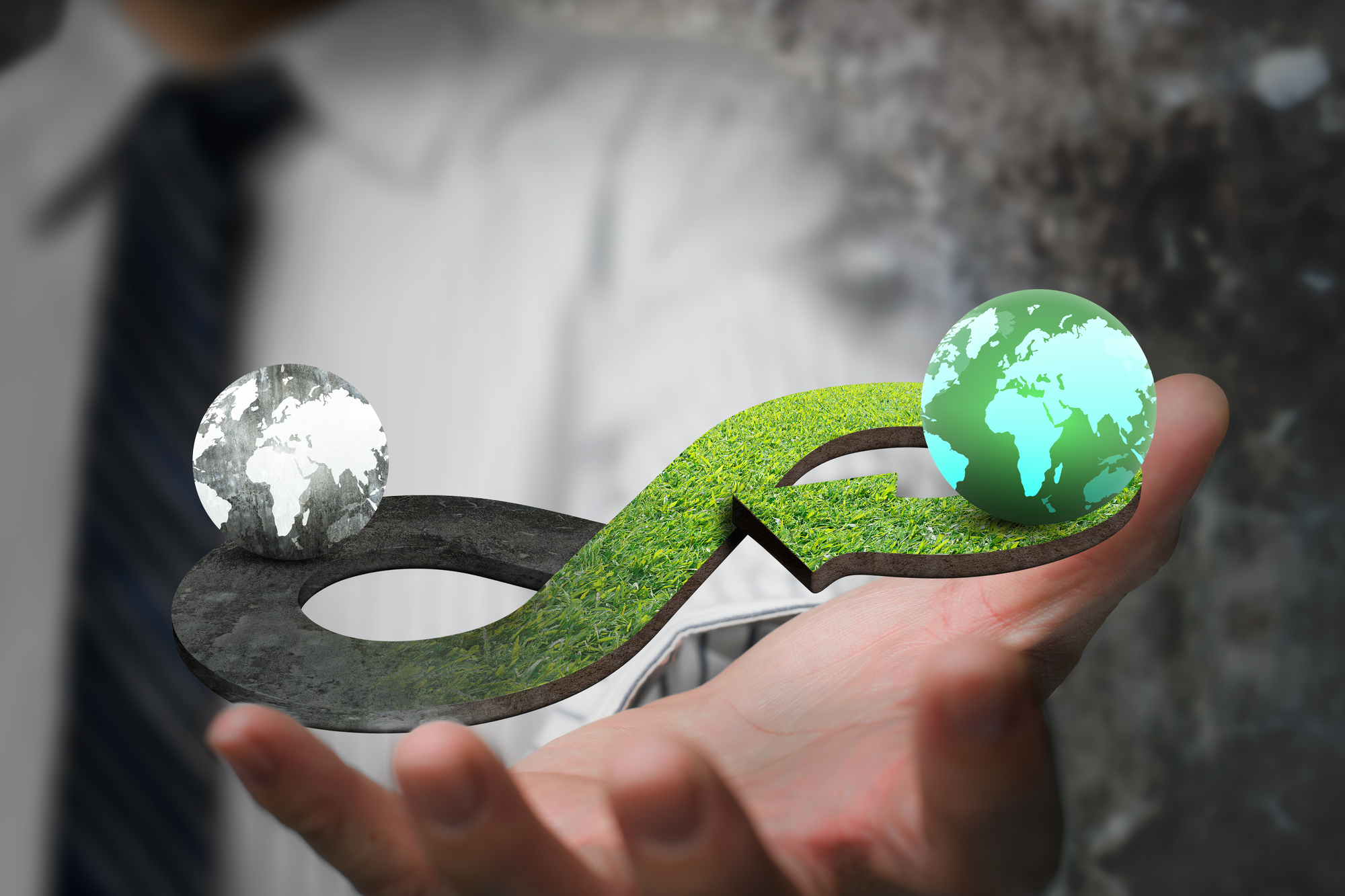Today, the world seems to be at an inflection point. The coalescence of consumer concern, technological possibilities, industry initiatives and government regulations to encourage and enable a circular economy is creating a seachange across all industries.
The endeavour to sustainability is a complex and holistic issue requiring environmental, social and corporate change. Recently, I had the pleasure to discuss circularity with two sustainability experts with complementary perspectives: Dr. Christian Haessler, Head of Circularity at the Chemical company Covestro, and Dr. Richard Federowski from Roland Berger, who advises Consumer Goods companies. During our panel discussion, Richard said: “There's not just one challenge. There are multiple. That's the key challenge.”
These are the top three challenges that every company should focus on their way to circularity:
1. Leveraging Climate Neutral Materials
Today, petroleum feedstocks are typically less expensive than their bio-based alternatives. However, Dr. Christian Haessler predicts a change: “Businesses need to be climate neutral sooner rather than later. If you stay with products that have a high CO2 footprint, you will be out of business.”
The journey to solving the end of life challenge of different materials including plastics with innovative recycling processes has already started. Christian insists that banning plastics is not the solution: “There is no green energy, no solar modules, no wind blades without polymers. Polymers help reduce weight, for example in cars, which leads to less energy and fuel consumption. A sustainable world without plastics will not be achievable. But of course, we need to solve the end of life challenge.”
Today, 2.5 billion tons of plastic are in commerce that could be captured and reused. Only 14 - 18% are recycled at the global level. Dr. Christian Haessler asks: “We need to run carbon in a loop - who else but the chemical industry could do that?” He predicts that using waste-based materials to build up new polymers and create new materials, combined with being mindful of energy consumption, CO2 emissions and recycling will give the chemical industry an economic boost: “We have all the innovation power and expertise there. It's a huge innovation challenge but it's THE topic for us.”
2. Transparency across the Whole Product Life Cycle
Transparency is key - throughout the supply chain as well as towards customers and consumers. From an industry view, it’s all about traceability. “If you want to realize a circular economy, you have to know where your material is, when and what properties it has. Circular economy is also a data topic. You should not underestimate that. If we are strong in digitalization, we can make it happen”, says Dr. Christian Haessler.
Digitally-connected consumers are already asking more questions on the provenance of products and this demand for information will accelerate. What is the CO2 footprint? Where was it produced and under which conditions? How much and which type of energy was used to produce and ship it? Transparency will impact buying decisions within the supply chain as well as with the end consumer. As Dr. Richard Federowski states: “Consumers have the strongest weapons in their hands. They decide by every transaction what they want. When the demand rises for sustainable products, then the whole industry will change.” The future has already started as more and more brands and companies make sustainability central to their mission.
3. Mindset Change by Companies and Consumers
Dr. Richard Federowski compares the transformation to circularity with the mindset shift and change in consumption patterns regarding organic food: “It started as a niche. You could only buy organic food in very small specialty shops. Nowadays, it is established and continually growing its presence on all mainstream shelves, even at discounters.” He is confident that we will see the same change towards sustainability and circularity. A current Roland Berger report found that some people are already willing to pay a premium for sustainable products. “Four, five years ago, the same report found that nobody wanted to pay extra for sustainable products, so there is progress into the right direction”, concludes Dr. Richard Federowski.
That mindset change affects companies in the same way. Dr. Christian Haessler explains: “We have to turn away from linear patterns. You have to think along the whole value chain. That will mean that we need much closer cooperation across companies than in the past. Because you want to paint it into a circle together and no company can do that alone.”
Do you have all the product data you need to make informed decisions? To what extent do you need to share data with your suppliers, customers and end consumers? Every company must close the loop and provide reliable answers to consumer demands, which requires closer cooperation within and across industries. Digital transformation is an enabler for this (r)evolution and all innovation coming with it.
SHARE







